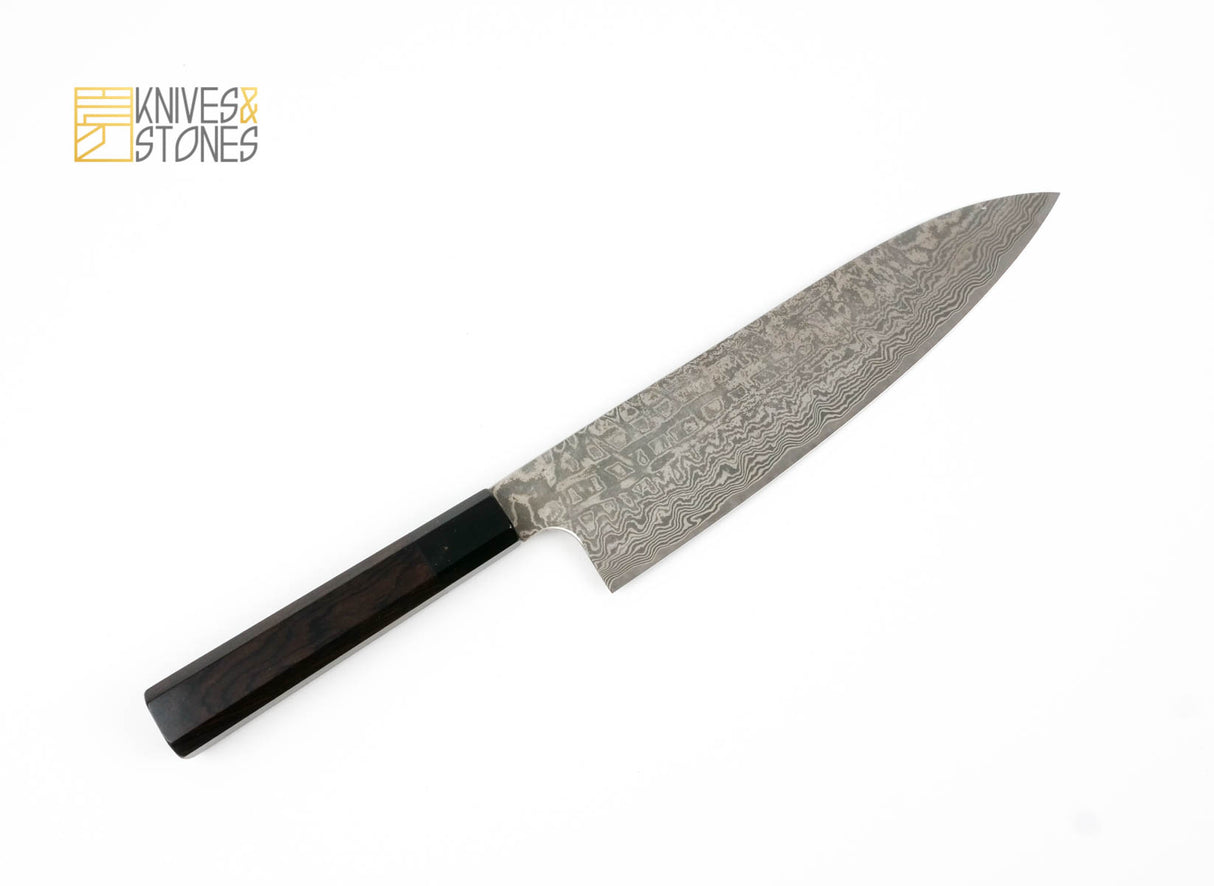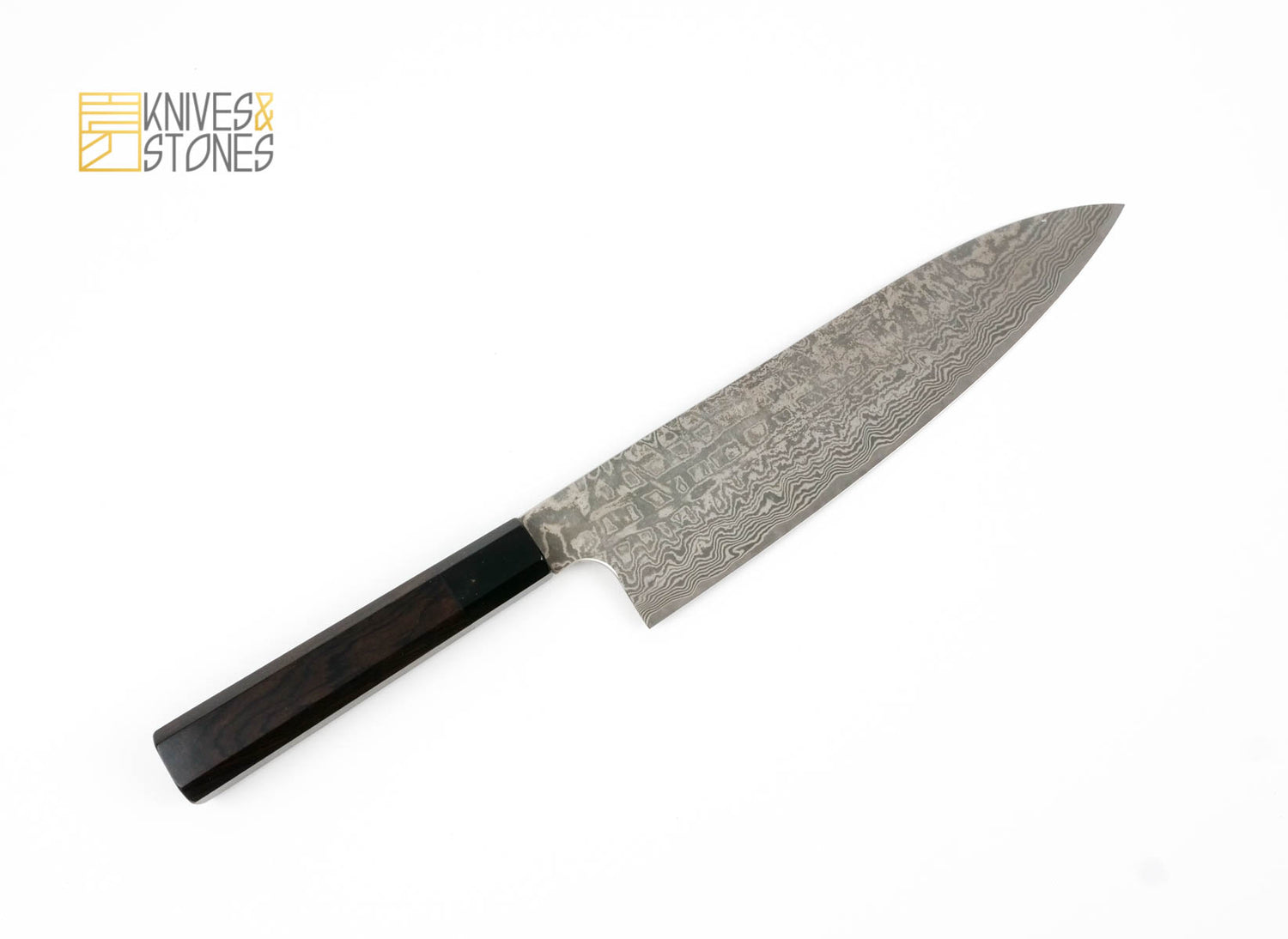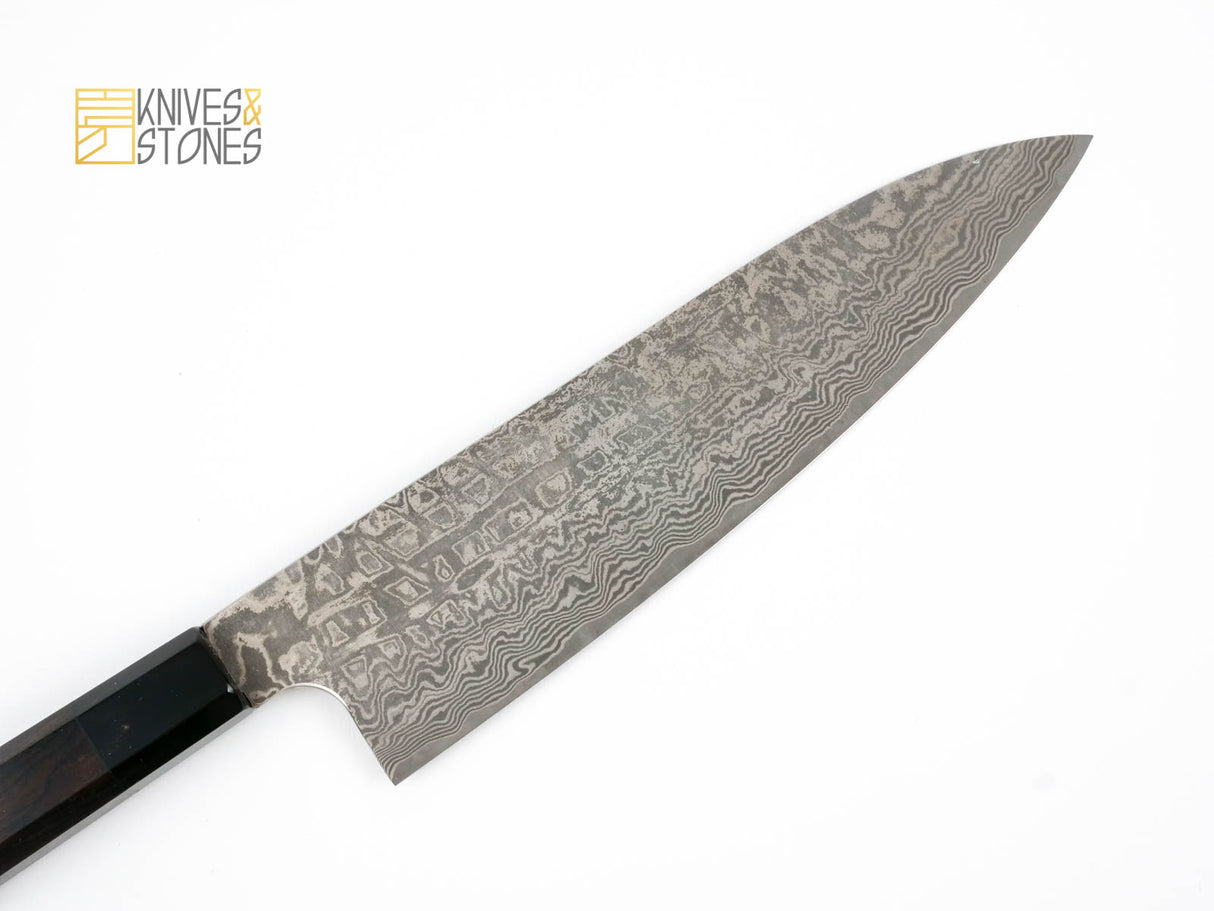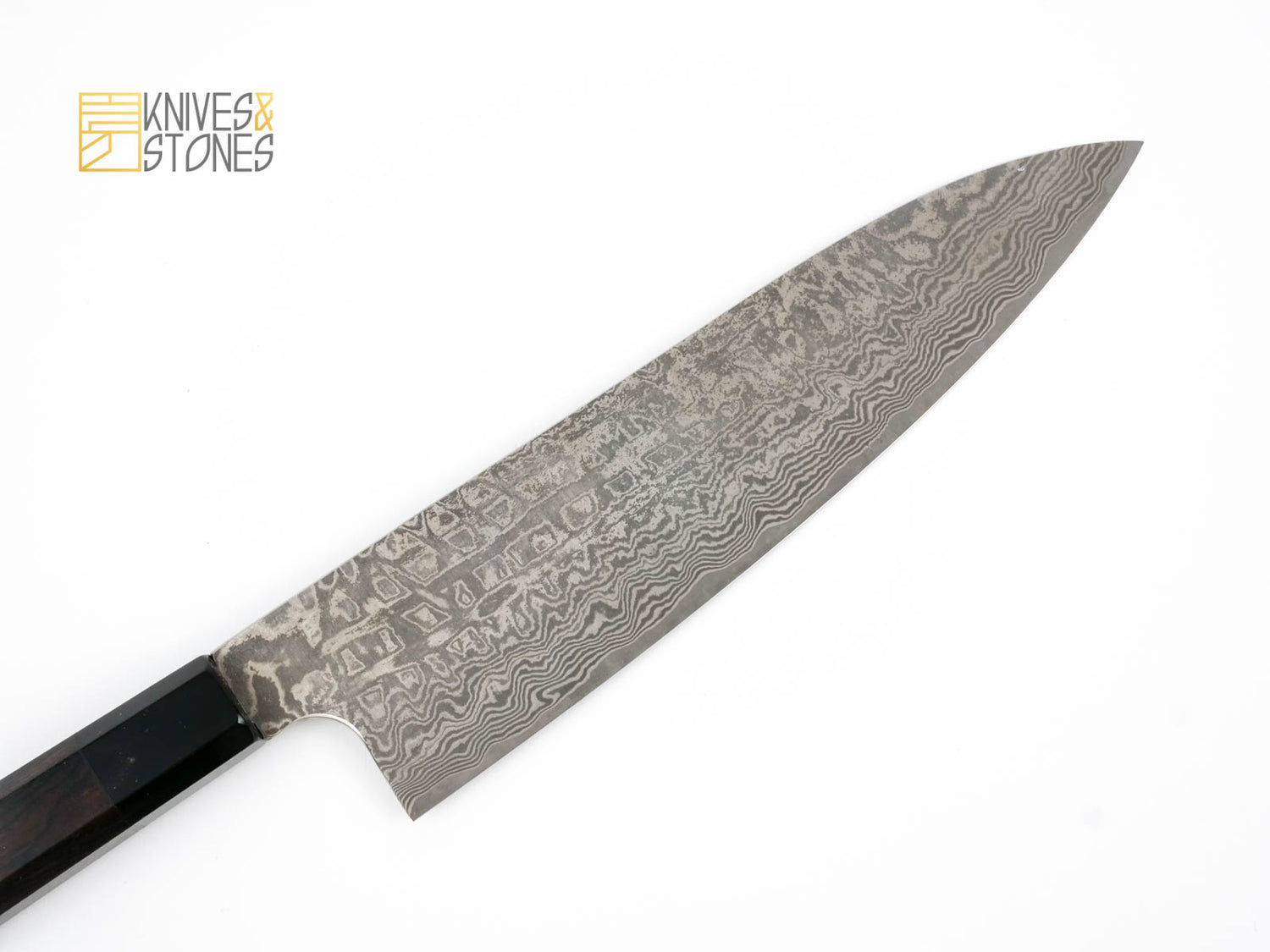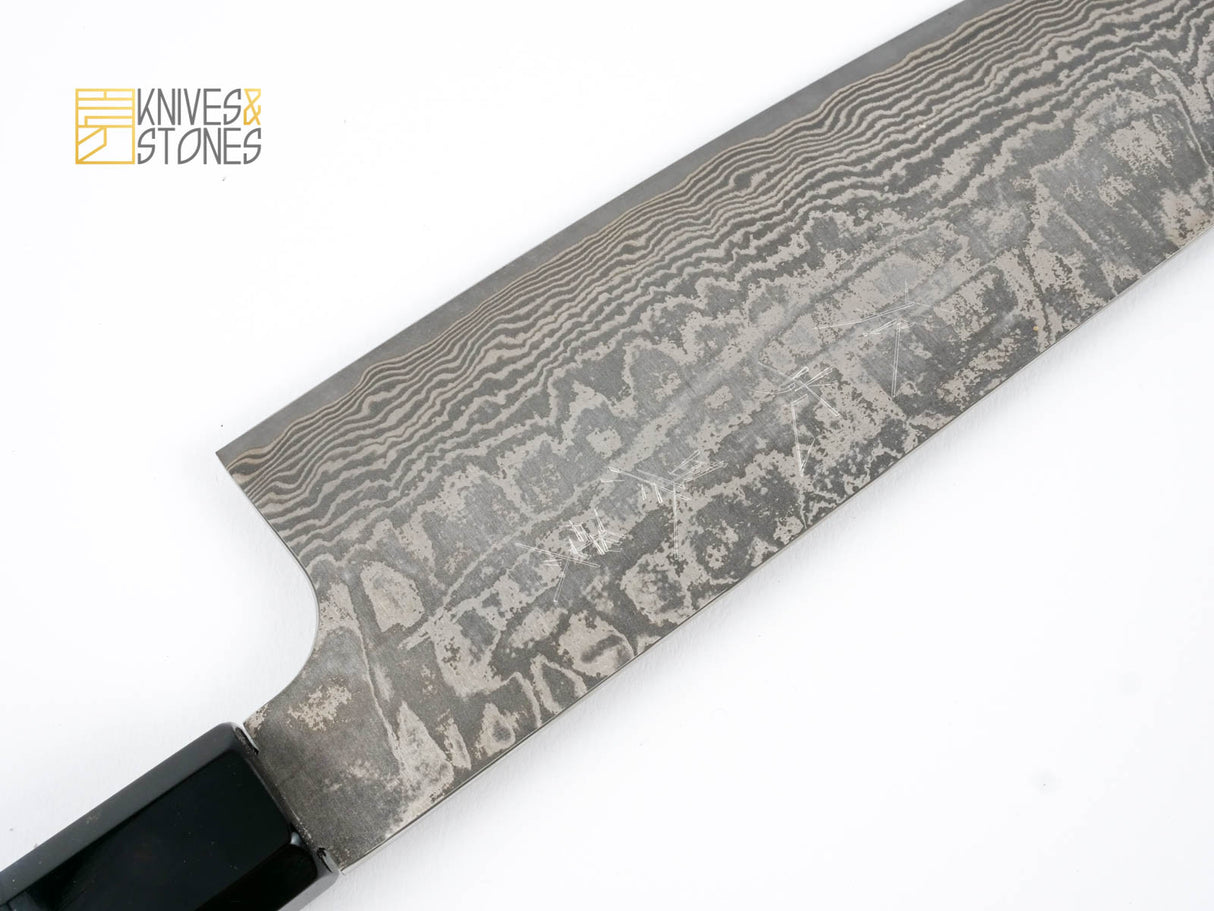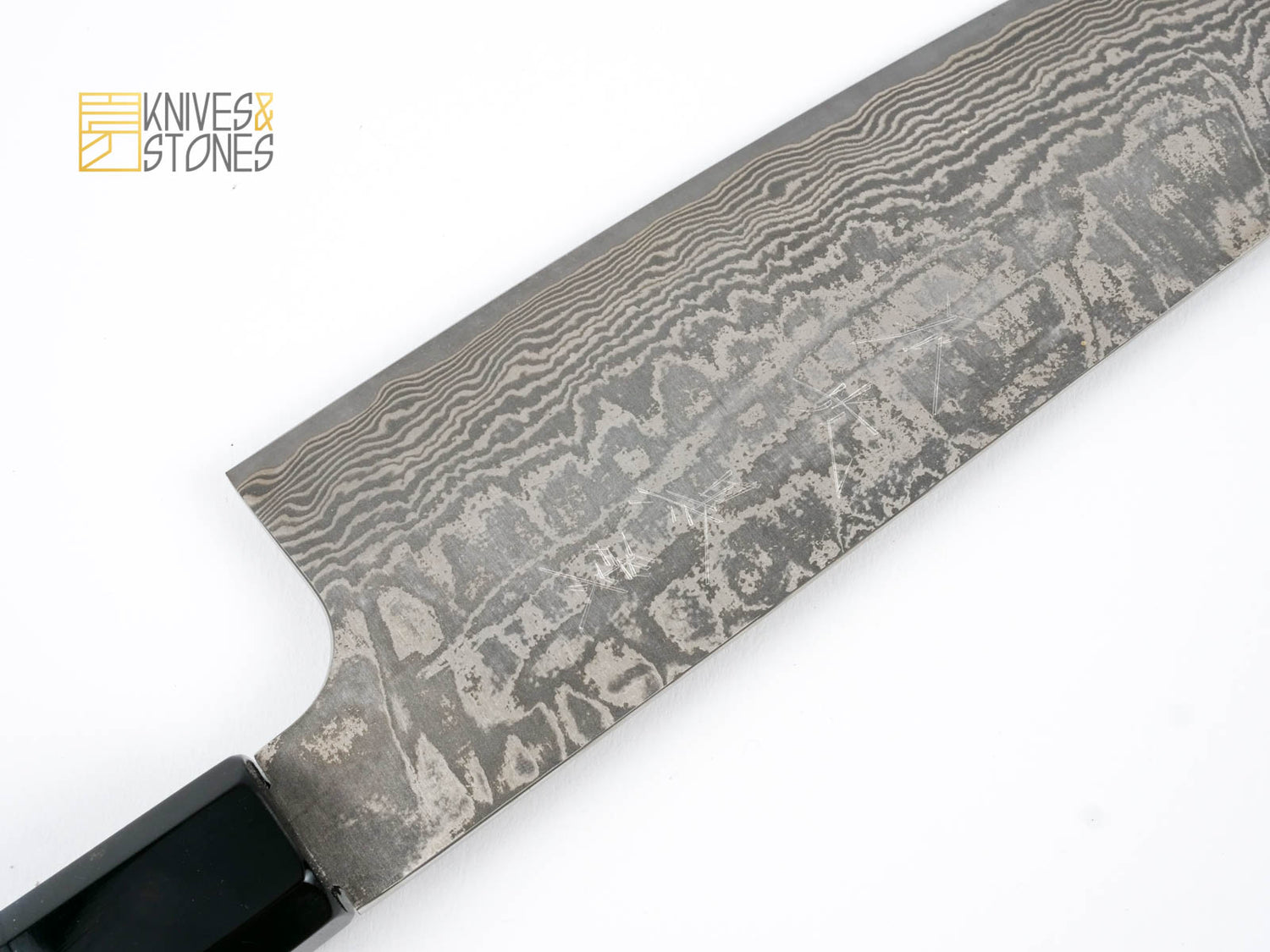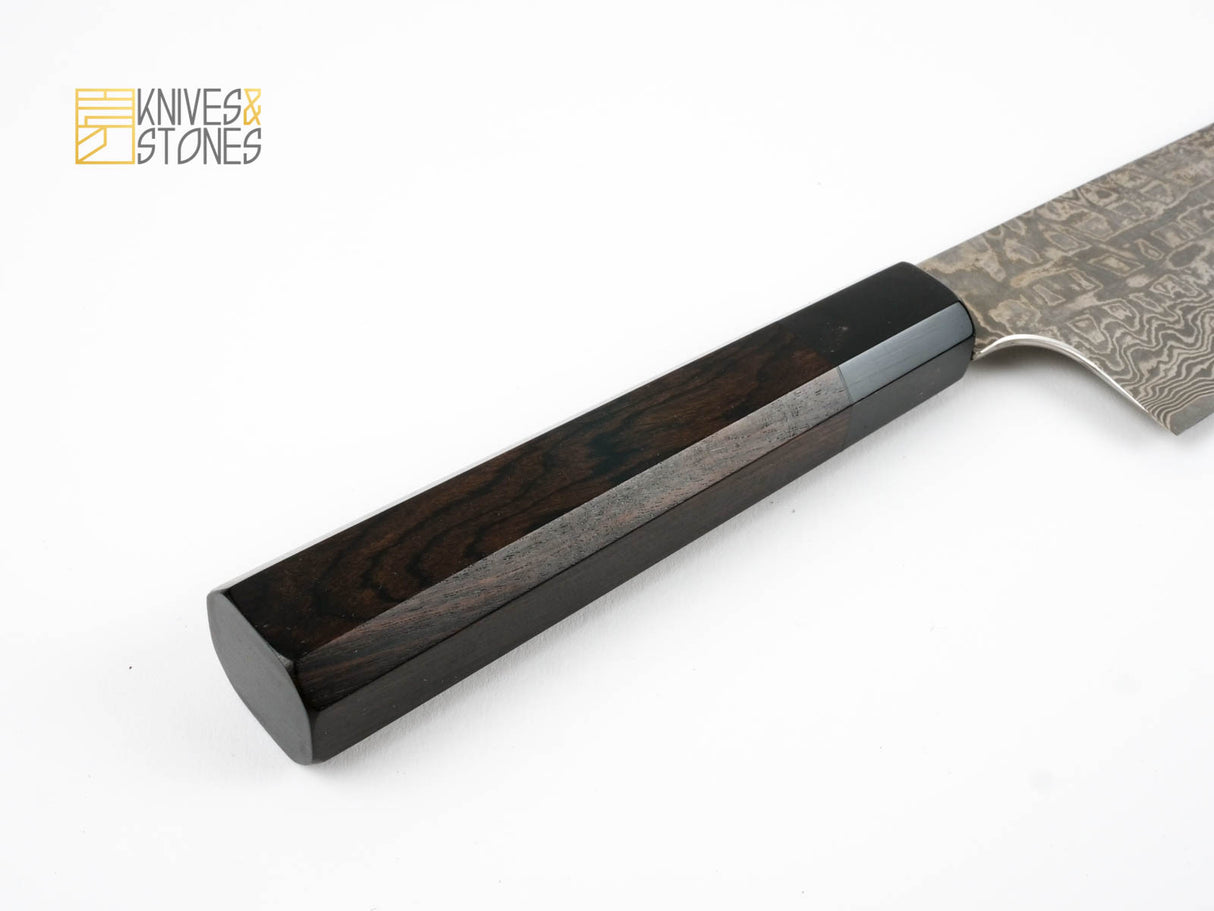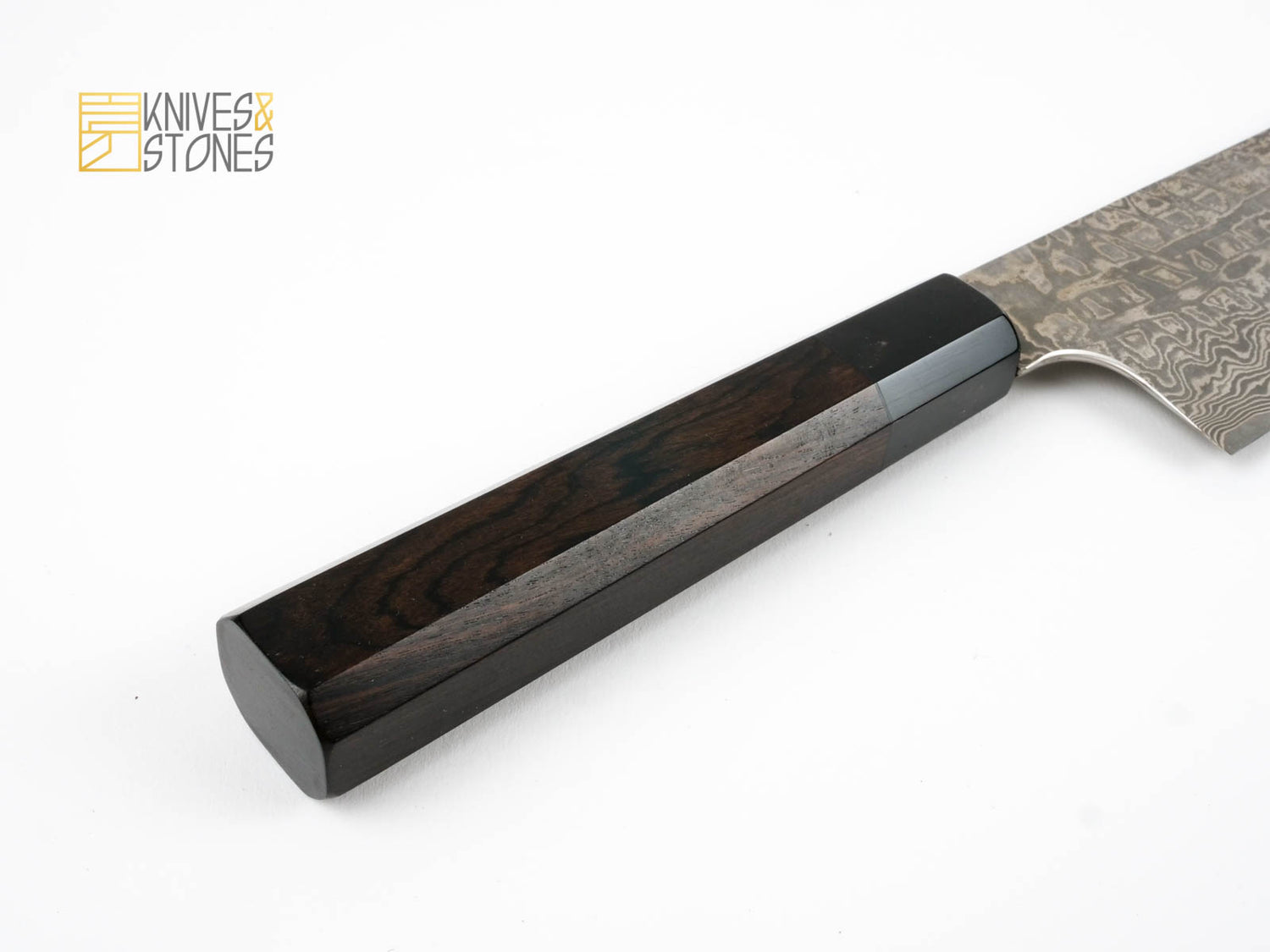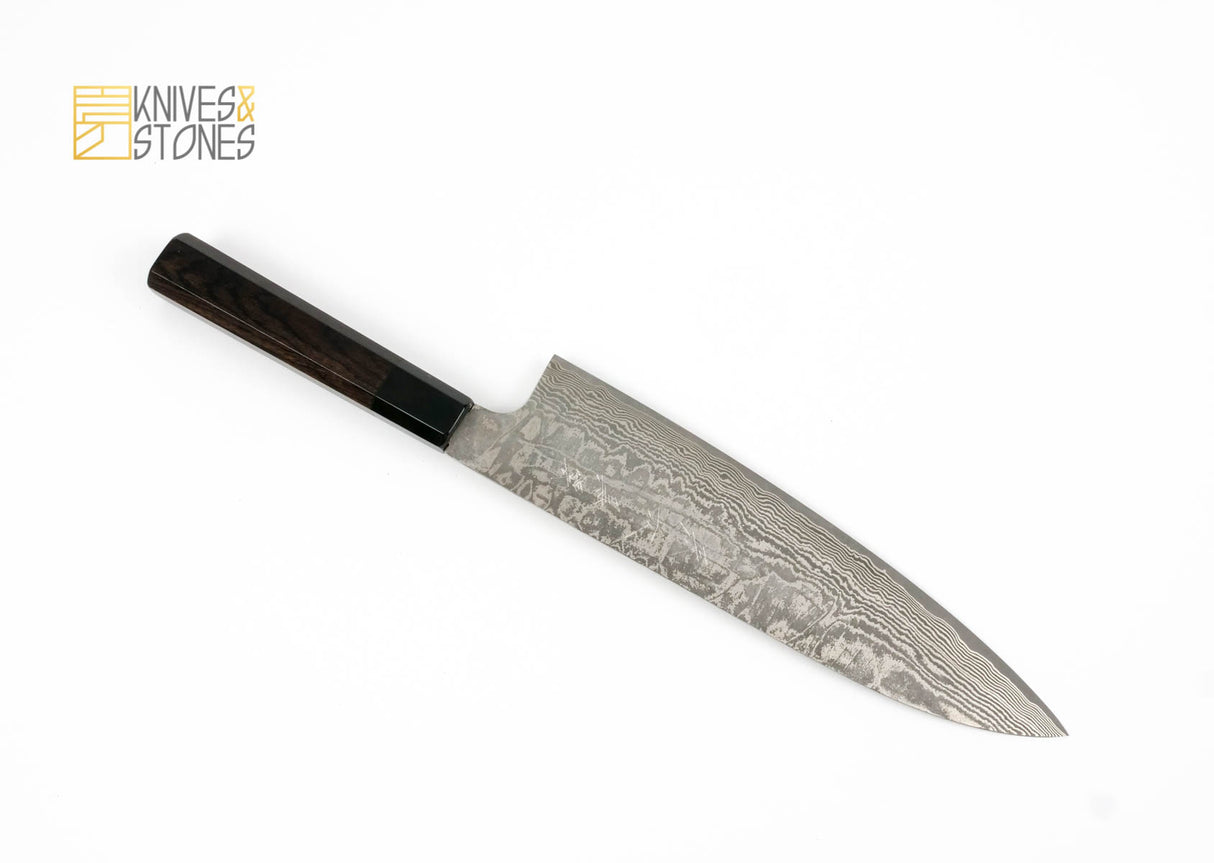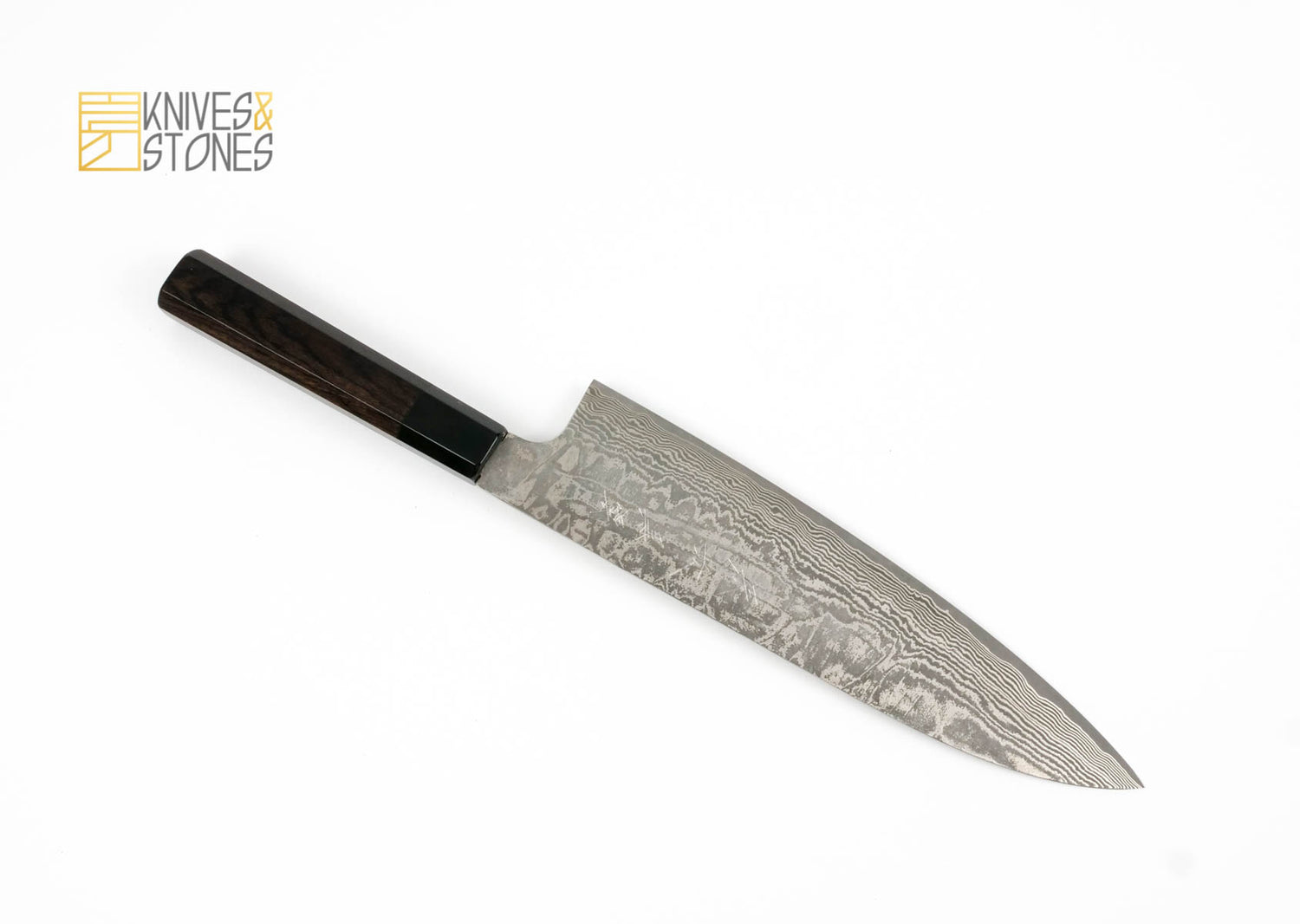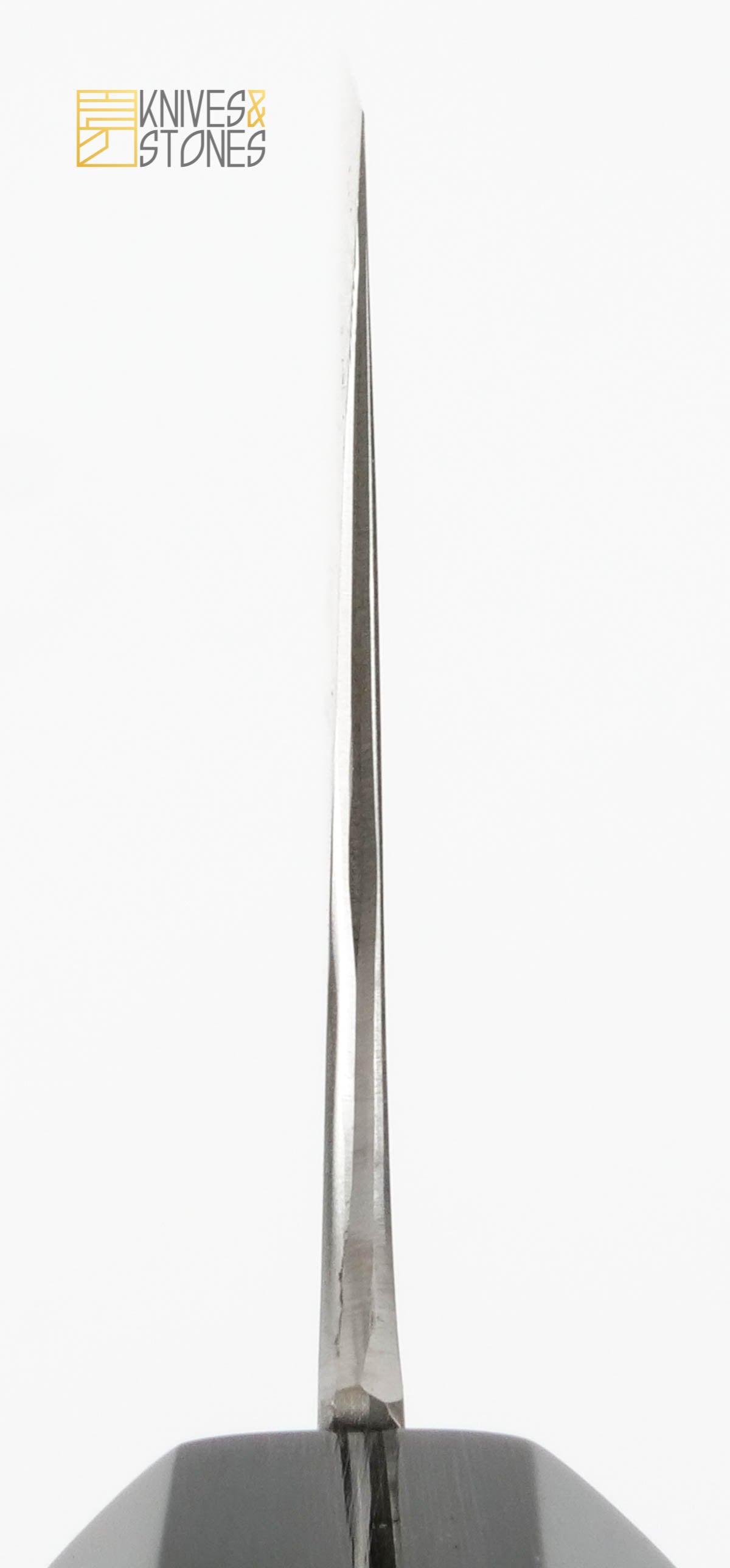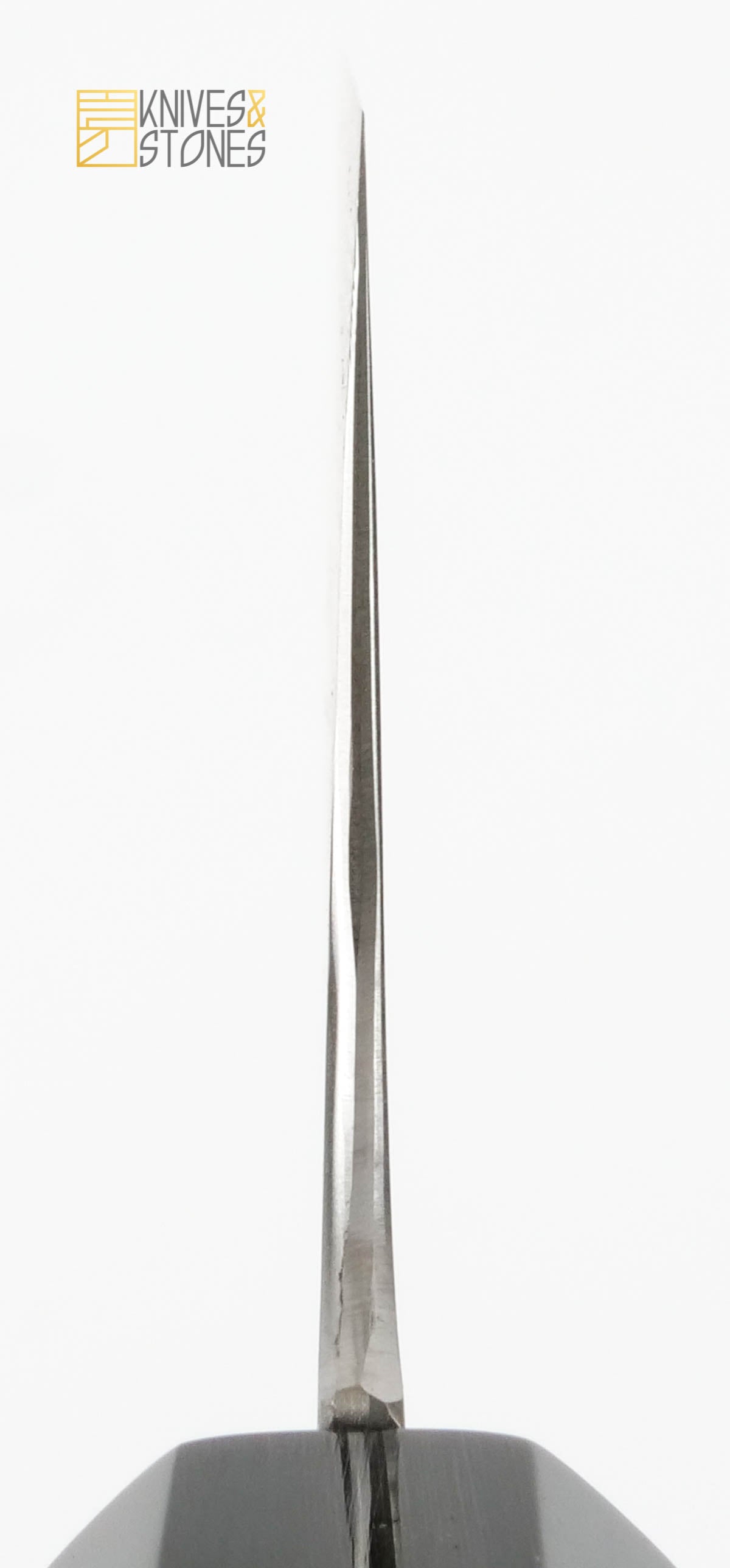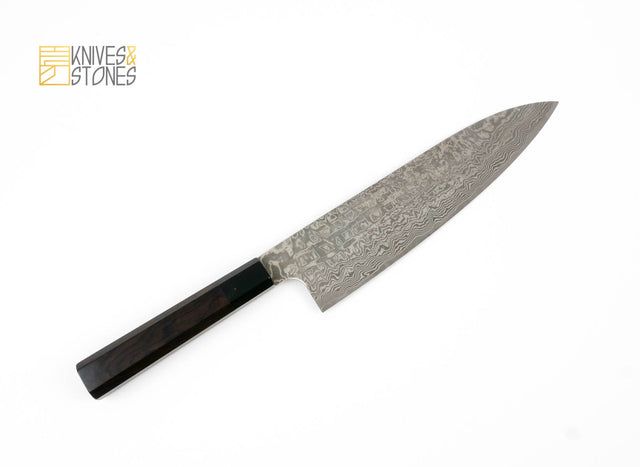Shinko Kurokumo R2 Damascus Gyuto 210mm by Shiro Kamo
Shinko Kurokumo R2 Damascus Gyuto 210mm by Shiro Kamo is backordered and will ship as soon as it is back in stock.
Couldn't load pickup availability
Care information
Care information
Display general product information or specific product information using metafields.
Delivery and Shipping
Delivery and Shipping
Add some general information about your delivery and shipping policies.
Highlight title
Text to highlight a key feature of your product
Description
Description
I am super glad to offer you the Shinko Kurokumo by Master Shiro Kamo. The concept of the Kurokumo is very similar to my Syousin Chiku Migaki line: people really like a standard line, so I make up a even better custom line based on it.
In this case of Shinko Kurokumo, Shinko (辰光) is the K&S in house brand and the Kurokumo (黑雲, black cloud) represents the acid etched damascus pattern. The knife itself is idential to the Syousin Suminagashi namely same profile, same grind and the same core-steel (R2).
Extra compared to the standard Syousin Suminagashi
- Acid etch the blade to give it a more pronounced damacus pattern,
- Rounded choil and spine
- K&S custom handle
| Shinko Kurokumo R2 Damascus 210mm Gyuto |
||
|
Weight |
203 g |
|
|
Total Length |
364 mm |
|
|
Tip to Heel Length |
210 mm |
|
|
Blade Height at Heel |
53 mm |
|
|
Width of Spine Above Heel |
2.6 mm |
|
|
Width of Spine at Middle of Blade |
2.0 mm |
|
|
Width of Spine at about 1cm From the Tip |
1.0 mm |
|
|
Steel |
R2 PM Core, DamascusStainless Cladding |
|
|
Hardness |
HRC 62:64 | |
|
Handle Design |
K&S Ebony handle, black or blonde horn ferrule | |
The Steel
R2 is a type of PM steel (Powder Metallurgy) that is long regarded as the best all-rounder steel for kitchen knives. The PM process produce a very fine grain for the steel, so it gets sharper than the traditional non-PM steel; the added Vanadium and Molybdenum give the steel excellent wear-resistance and toughness, means it is less likely to chip and keeps the edge much longer.
The wear-resistance property of PM steel can sometimes be a double-sword for kitchen knives. That is, if the blade is made of mono-steel construction (non-cladded, usually done by stock removal), the excellent wear-resistance property means the bevel is notoriously hard to thin and refinish (generally speaking all the monosteel knives are more or less like so, but PM steel is that much harder).
Now the beauty of sanmai construction kicks in. Sanmai literally means “three pieces”: a thin layer of core steel is sandwiched between two layers of soft iron or stainless steel. Doing so not only allows the knife to cut as good as a monosteel knife (core steel doing the work), but more importantly, enables the knife to be thinned with ease (removing the soft cladding rather than a hard steel with hardness over HRC 60). In the case of Syousin Suminagashi line, the soft cladding is even hand forged by Kamo-san with an eye catching Damascus pattern.
About Shiro Kamo

Fig: Master Shiro Kamo forging a Syousin Suminagashi blade at the Takefu Knife Village, Echizen, Japan
Shiro Kamo, while little known overseas, is a well regarded knife smith in Japan. He was awarded the prestigious “Dento-kogeshi” (Master of Traditional Crafts) at a very young age (total of about 10 persons are awarded in Echizen area, likes of Takeshi Saji and Katsushige Anryu). He is also the president of the Takefu Knife Village Cooperative (http://www.takefu-knifevillage.com/company/) that is the reason I say while not known by many of us outside, Kamo-san is certainly a highly regarded figure in the kitchen knife industry. His knives have exceptional profile and grind, and the heat treatment of R2 steel is so impressive that you are assured to be getting a damn good knife. I just can’t afford to not offer his work to you :D

Fig: Master Shiro Kamo forging a Syousin Suminagashi blade at the Takefu Knife Village, Echizen, Japan
Payment & Security
Payment methods
Your payment information is processed securely. We do not store credit card details nor have access to your credit card information.

